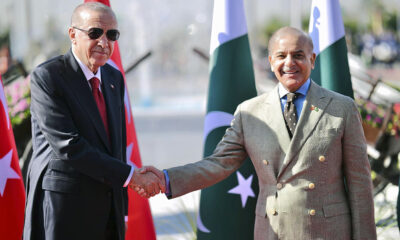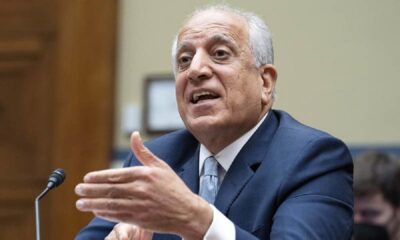Latest News
U.N. aims to launch new Afghanistan cash route in February
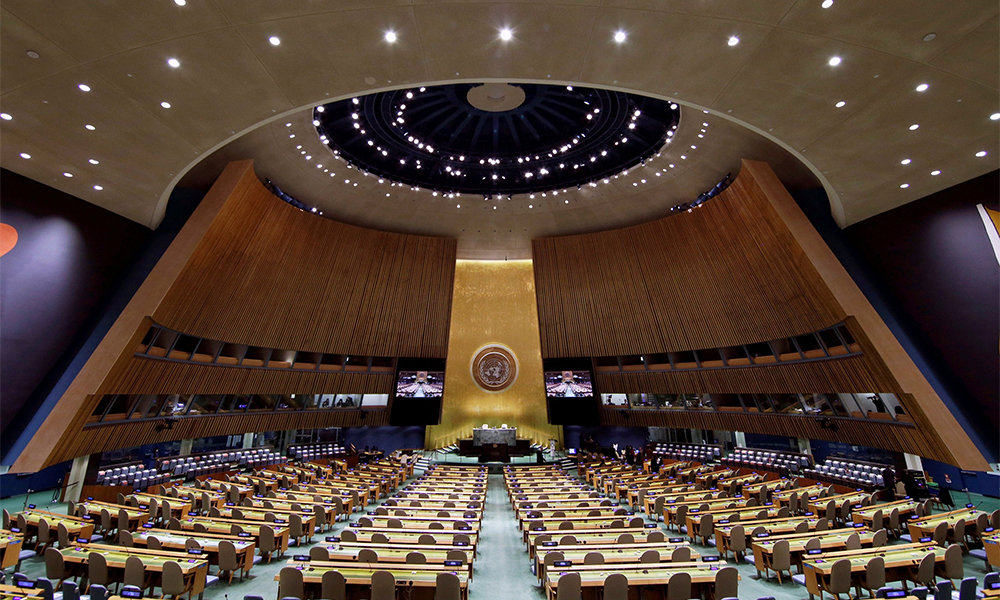
The United Nations aims to kick start this month a system to swap millions of aid dollars for Afghan currency in a plan to stem humanitarian and economic crises and bypass blacklisted Taliban leaders, according to an internal U.N. note seen by Reuters.
Since the Islamic Emirate of Afghanistan (IEA) takeover in August, foreign financial assistance has stopped and international banks are wary of testing U.N. and U.S. sanctions on the IEA, leaving the United Nations and aid groups struggling to obtain cash even as they continue to receive humanitarian donations.
The U.N. explanatory note, written last month, outlines an “urgently needed” Humanitarian Exchange Facility (HEF). The United Nations has warned that more than half of Afghanistan’s 39 million people are suffering extreme hunger and the economy, education and social services are collapsing.
“The overall objective is to have the HEF up and running in February,” the note said. “Prior to the full establishment of the facility, we seek to facilitate several trial swaps, to demonstrate exactly how the mechanism will work.”
U.N. and humanitarian officials warn that the facility can be only a temporary measure until Afghanistan’s central bank begins operating independently and some $9 billion in foreign reserves frozen abroad are released.
But when that could happen is uncertain. The reserves held by the United States are tied up in legal action and Western governments are reluctant to release funds unless they see the IEA show greater respect for human rights, especially those of women and girls.
The HEF would allow the United Nations – which is seeking $4.4 billion for humanitarian assistance this year – and aid groups access to large amounts of the national currency, the afghani, held in the country by private businesses.
In exchange, the United Nations would use aid dollars – potentially tens of millions – to pay the businesses’ foreign creditors, thereby bolstering the flagging private sector and critical imports.
“The facility’s flow of funds would not require the movement of funds across the Afghan border,” the U.N. note said.
While the money bypasses the IEA, the note says the HEF will need the approval of the IEA-run central bank for “the flow of funds and the exchange rate used and the withdrawal of AFN cash deposited into AIB (Afghanistan International Bank) without any restriction.”
A spokesman for the IEA care-taker government confirmed that officials in Afghanistan were aware of the proposal for the HEF, but did not know the details or the procedure.
“We welcome any kind of humanitarian actions for the people of Afghanistan, but all actions should be taken according to Afghanistan’s laws and national interests,” Bilal Karimi told Reuters on Friday in response to a question on the HEF.
The United Nations does not comment on leaked documents, U.N. spokesman Stephane Dujarric said of the note. U.N. Secretary-General Antonio Guterres has said Afghanistan is “hanging by a thread” and long pushed for international action to combat the economic crisis hampering aid efforts.
Afghanistan’s economy has continued to deteriorate, with inflation for basic household goods reaching nearly 42% in January, compared to the year-earlier period, the World Bank said on Wednesday. Wages and demand for labor continued to decline, as did imports, which were down 66% compared to a year earlier, it said.
Aid groups and U.N. officials have been advocating for a cash swap mechanism, but the U.N. note seen by Reuters provides new details on how it will work.
Graeme Smith, a senior consultant for the International Crisis Group think-tank, told the U.S. Senate Foreign Relations Committee on Wednesday that an exchange facility is needed quickly, but only as a stopgap measure.
“It is not sufficient,” he said. “Nobody should be under any illusions that this substitutes for the normal functioning of a central bank.”
Complicating the response, IEA leaders have banned the use of foreign currency in a country where U.S. dollars were common. The United Nations has flown in shipments of $100 bills, but the central bank has not converted them, leaving the world body sitting on about $135 million in cash that it cannot use, a U.N. official said last week.
Those funds are held in Kabul in the vaults of AIB, the official said, the private bank that would play a role in the new cash swap system.
The security of the cash flights and limits on how much can be delivered are key reasons for starting the new exchange facility, the note said.
World Bank and U.N. officials have been working to finalize the HEF, including completing a risk assessment, seeking a U.S. Treasury license to protect international banks from sanctions, and hiring a private company to vet participants and guard against money-laundering, the note said.
David Miliband, head of the International Rescue Committee, said the consequences of Afghanistan’s economic crisis could be devastating, and he called for a change in U.S. and international policy toward the country.
He told the Senate committee on Wednesday: “Current policy will indeed mean that a starvation crisis kills … more Afghans than the past 20 years of war.”
Latest News
United Kingdom halts visa routes from four countries, including Afghanistan
According to Home Office figures, approximately 39 percent of the 100,000 people who claimed asylum in 2025 had initially arrived in the UK through legal routes, including study visas.
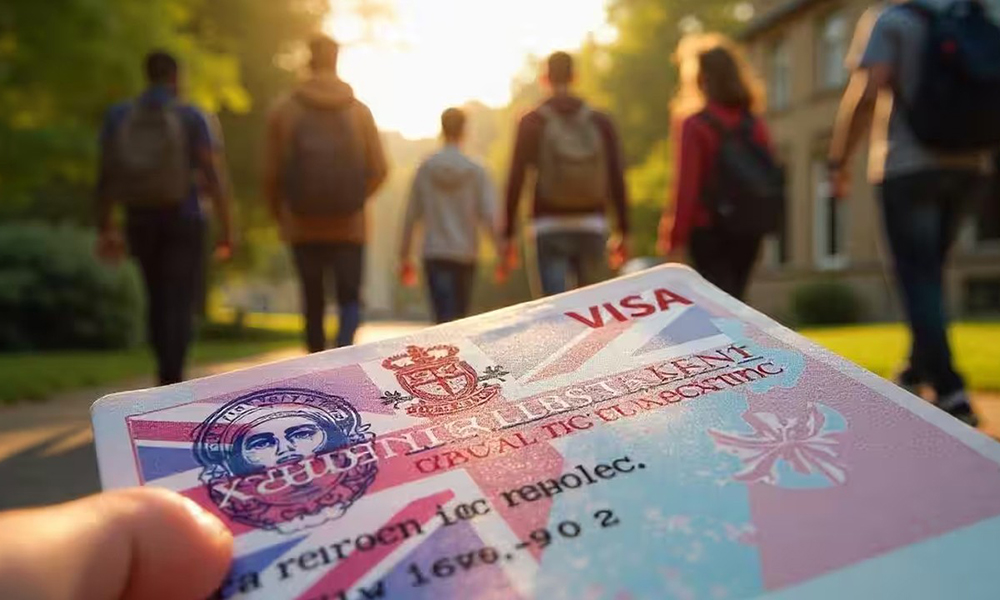
The UK government has suspended key visa routes for nationals from four countries, including Afghanistan, in what officials describe as an unprecedented move aimed at curbing misuse of the immigration system.
Home Secretary Shabana Mahmood announced that study visas for nationals of Afghanistan, Cameroon, Myanmar, and Sudan have been halted. In addition, work visa routes for Afghan nationals have also been suspended.
The Home Office said the decision follows evidence that a growing number of individuals from these countries have entered the UK through legal migration channels — such as student visas — before claiming asylum. Officials argue that this trend amounts to an exploitation of the visa system.
“Britain will always provide refuge to people fleeing war and persecution, but our visa system must not be abused,” Mahmood said in a statement. She described the move as necessary to “restore order and control” to the country’s borders.
According to Home Office figures, approximately 39 percent of the 100,000 people who claimed asylum in 2025 had initially arrived in the UK through legal routes, including study visas.
Authorities said asylum applications from nationals of the four affected countries have accounted for a significant share of the increase recorded between 2021 and September 2025.
The suspension, set to take effect through a formal change to immigration rules on Thursday, marks the first time the UK has imposed such targeted visa bans.
The move follows earlier warnings from Mahmood that visa restrictions could be introduced against other nations unless they cooperated in accepting the return of irregular migrants.
In November, similar threats were made toward Angola, Namibia, and the Democratic Republic of Congo, which later reached return agreements with the UK government.
The Home Secretary is expected to outline additional measures to tighten the asylum system in a speech later this week. Proposed reforms include reviewing refugee status every 30 months and requiring individuals to return to their home countries if conditions are deemed safe.
The policy shift comes as the government faces mounting political pressure to reduce asylum backlogs and irregular migration, while balancing its legal obligations under international refugee conventions.
Latest News
Turkey’s Erdoğan urges diplomacy in call with Shehbaz Sharif amid Middle East crisis
Ankara has previously supported mediation and diplomatic engagement aimed at reducing violence along the Durand Line.
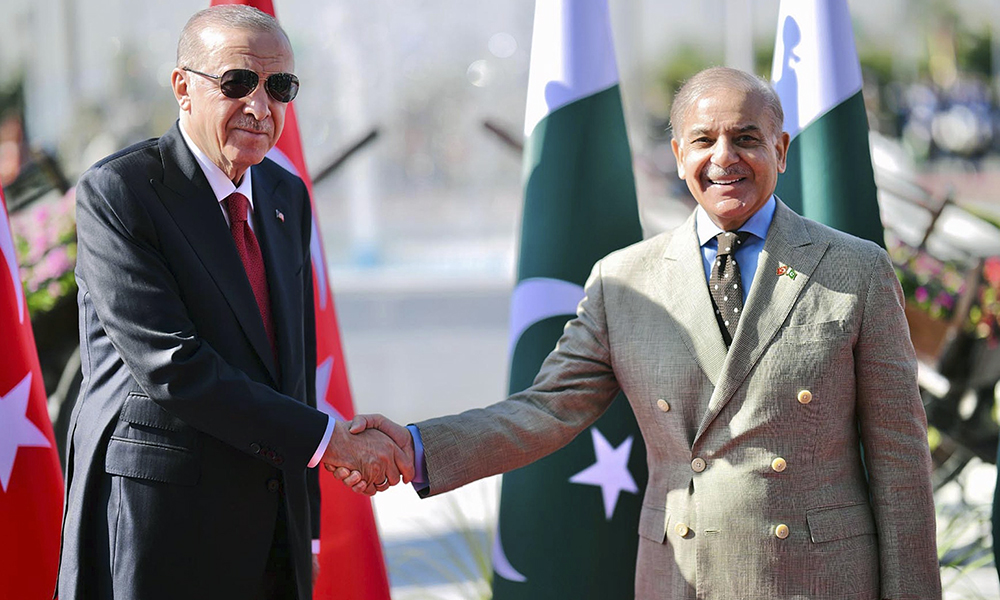
Turkish President Recep Tayyip Erdoğan held a telephone conversation Tuesday with Pakistani Prime Minister Shehbaz Sharif, calling for an urgent return to diplomacy as tensions escalate across the Middle East following recent U.S.-Israeli strikes on Iran.
According to Türkiye’s Directorate of Communications, the two leaders discussed bilateral relations as well as rapidly developing regional events.
Erdoğan stressed that renewed diplomatic engagement offers the most viable path to de-escalation and warned that continued military confrontation risks further destabilizing an already fragile region.
The call comes amid heightened tensions after joint U.S.-Israeli strikes targeted senior Iranian figures, dramatically increasing fears of wider conflict. Ankara has consistently advocated dialogue and political solutions in regional disputes, positioning itself as a potential mediator.
Condemnation of Attacks in Pakistan
During the conversation, Erdoğan condemned recent terrorist attacks in Pakistan and reaffirmed Türkiye’s solidarity with Islamabad in its counterterrorism efforts. He underscored the close strategic partnership between the two countries and reiterated Ankara’s commitment to supporting Pakistan’s security and stability.
Türkiye and Pakistan maintain strong diplomatic, economic, and defense ties, with regular high-level exchanges and cooperation across multiple sectors.
Support for Pakistan-Afghanistan Ceasefire
Erdoğan also addressed tensions along the Durand Line, the disputed Afghanistan-Pakistan frontier, expressing Türkiye’s readiness to assist in efforts to restore and maintain a ceasefire between the two neighbors.
Ankara has previously supported mediation and diplomatic engagement aimed at reducing violence along the Durand Line.
The leaders additionally reviewed broader regional developments and reaffirmed their commitment to strengthening Türkiye-Pakistan relations.
As instability spreads across the Middle East, Erdoğan’s outreach underscores Ankara’s diplomatic push to contain the crisis and prevent further escalation through dialogue rather than military confrontation.
Latest News
Khalilzad says Pakistani public does not support policies leading to Afghan civilian deaths
He added that, in his view, the gap between the Pakistani people and the country’s ruling structure appears to be widening.
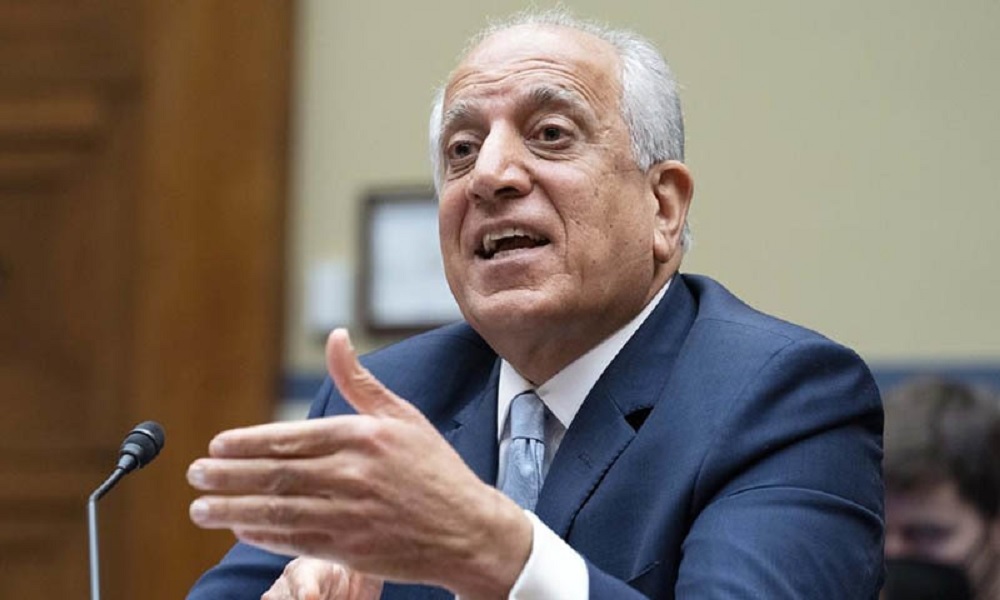
Zalmay Khalilzad, former United States Special Representative for Afghanistan Reconciliation, has said he does not believe the people of Pakistan support policies that have resulted in the killing of Afghan civilians.
Referring to a recent report by the United Nations on civilian casualties, Khalilzad stated on X that the policies of Pakistan’s governing establishment should not be equated with the views of its population.
He added that, in his view, the gap between the Pakistani people and the country’s ruling structure appears to be widening.
His remarks come amid recent UN reports indicating a rise in Afghan civilian casualties following Pakistani regime airstrikes, further intensifying regional tensions.
-

 Latest News4 days ago
Latest News4 days agoPakistani military jet downed in Afghanistan’s Jalalabad, pilot captured alive
-
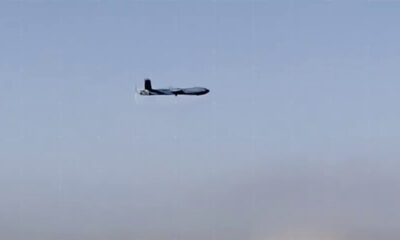
 Latest News2 days ago
Latest News2 days agoAfghan air force strikes key Pakistani military installations in retaliatory operation
-
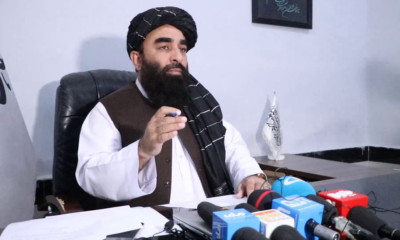
 Latest News5 days ago
Latest News5 days agoIEA: Special circle in Pakistan has launched mission to destabilize region
-
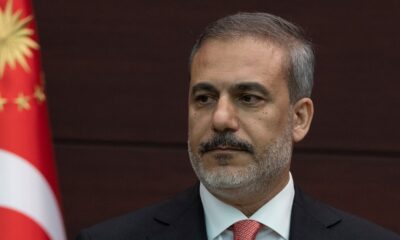
 Latest News5 days ago
Latest News5 days agoTurkey launches initiative to diffuse Afghanistan-Pakistan tension
-
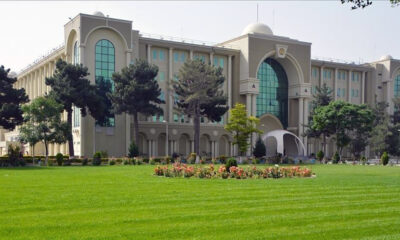
 Latest News4 days ago
Latest News4 days agoAfghan forces conduct fresh airstrikes on Pakistani military targets
-
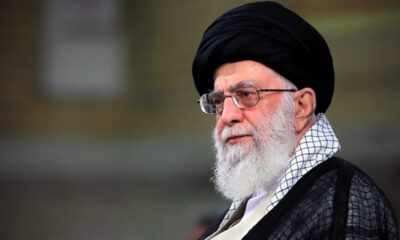
 World3 days ago
World3 days agoUS lawmakers, world leaders react to death of Ayatollah Ali Khamenei after Iran strikes
-
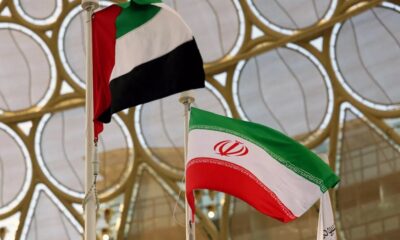
 Latest News4 days ago
Latest News4 days agoUAE and Iran call for diplomatic resolution to Afghanistan–Pakistan tensions
-
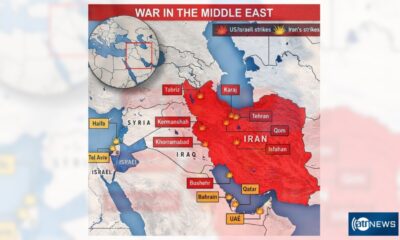
 Regional3 days ago
Regional3 days agoIran launches widespread drone and missile strikes on Gulf states amid US-Israeli attacks




